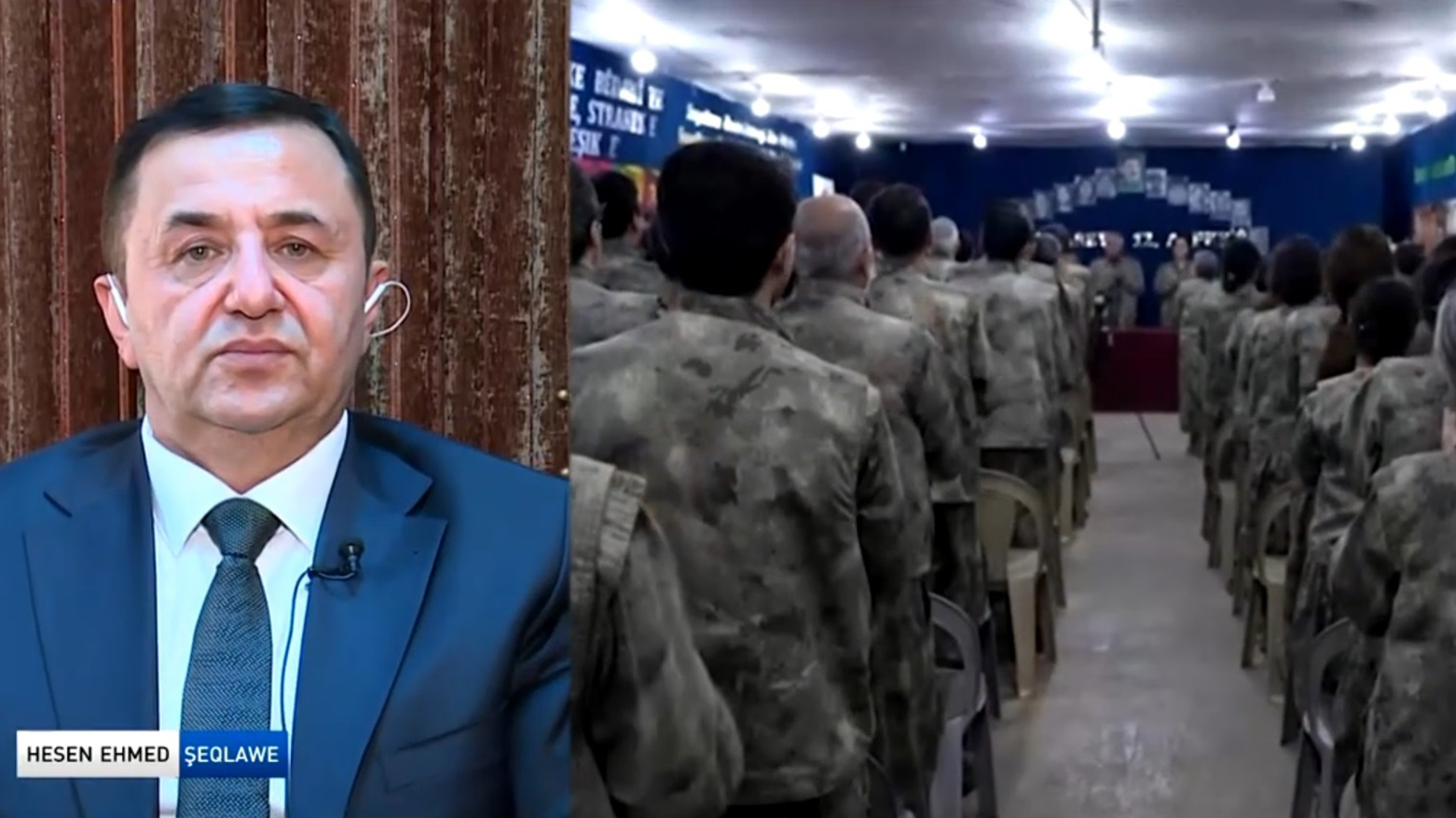Expert Says Political, Economic, and Geopolitical Pressures Forcing Dialogue with Kurds
Turkey's push for PKK disarmament stems from political survival needs, economic strain, and countering Iran's influence, says expert Dr. Ehmed. While Kurdish votes are key for AKP's 2028 prospects, deep distrust and conflicting demands complicate peace.

By Ahora Qadi
ERBIL (Kurdistan24) – Dr. Hesen Ehmed Mistefa, an expert in international relations, emphasized on Wednesday that the internal political climate of Turkey, compounded by economic pressures and shifting geopolitical dynamics, has compelled Ankara to engage with the Kurdish question as part of the broader process concerning the disarmament of the Kurdistan Workers’ Party (PKK). In remarks to Kurdistan24, Dr. Ehmed outlined three critical factors—political, economic, and geopolitical—that are driving Turkey toward this path.
Speaking on the political factor, Dr. Ehmed pointed to Turkey’s upcoming 2028 elections as a pivotal driver. “The Justice and Development Party (AK Party) must make a historical maneuver to remain in power. Whether led by Erdogan or someone else, they need Kurdish votes to survive politically. Hence, to maintain their alliance with the Nationalist Movement Party (MHP), they find themselves compelled to reestablish a dialogue with the Kurds,” he said.
Economic Burden and the Cost of Military Campaigns
On the economic front, Dr. Ehmed highlighted the toll of Turkey’s prolonged conflicts and foreign interventions. “Turkey’s economy has been at its weakest in 23 years. Military operations against the PKK and deployments in Syria, Iraq, Libya, and Azerbaijan have significantly burdened Ankara’s finances. Resolving the Kurdish conflict could be key to recalibrating its domestic economy,” he explained.
Geopolitical Rebalancing and Countering Iran
Perhaps most significantly, Dr. Ehmed underlined the evolving geopolitical equation in the region. “Turkey wants to use the ‘Kurdish card’ to counter Iran’s expanding Shiite Crescent strategy in the region. While Iran wields missiles and nuclear deterrents, the only balancing card Turkey possesses against Tehran is the Kurds. Therefore, Ankara’s engagement with Kurds in Syria and Iraq becomes a strategic necessity,” he noted.
Trust Deficit: The Fundamental Obstacle
Yet, Dr. Ehmed warned that the primary obstacle remains a deep-rooted distrust between the PKK and the Turkish state. “In past peace initiatives, figures who tried to build trust were imprisoned. This legacy has created a profound confidence deficit,” he said, adding that, “within the PKK, thousands of fighters are Kurds from Iran and Syria. What future awaits them? That remains an unresolved question.”
He also pointed out that both sides' demands are inherently conflicting. “Turkey wants unconditional surrender, while the Kurds are calling for constitutional changes, the release of prisoners, and a series of democratic reforms.”
The Role of the Kurdistan Region
Regarding the Kurdistan Region’s position, Dr. Ehmed described it as strategically indispensable. “Undoubtedly, the Kurdistan Region plays a central role in this issue and in the regional geopolitical architecture. Situated between three historic empires—Turkish, Arab, and Persian—it serves as a gateway to global diplomacy. However, for the Region to play a meaningful role, it must first foster internal unity and build mutual trust within itself,” he concluded.
Dr. Ehmed’s analysis reflects a growing recognition that resolving the Kurdish issue is not merely a domestic matter for Turkey but a regional imperative with wide-reaching implications for stability, diplomacy, and balance in the Middle East.
